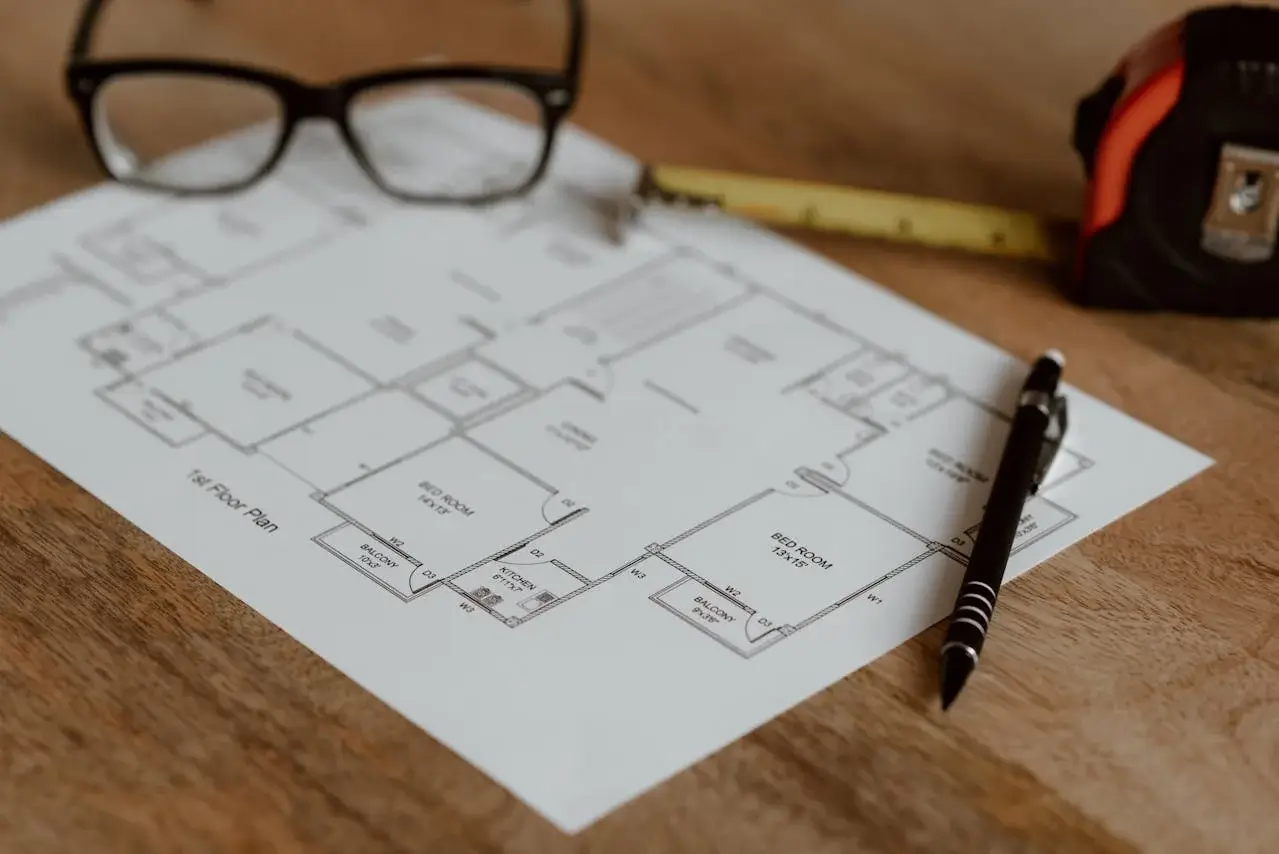In the vibrant state of Florida, finding the right renovation contractor can be the key to turning your home improvement dreams into reality. From Miami to Orlando, Jacksonville to Tampa, homeowners seek trustworthy professionals who can deliver exceptional results. In this comprehensive guide, we’ll explore the steps and strategies to help you discover the best renovation contractors in Florida.
Table of Contents:
- Understanding Your Renovation Needs
- Researching Renovation Contractors
- Checking Credentials and Reviews
- Requesting and Comparing Quotes
- Meeting with Potential Contractors
- Signing the Contract and Setting Expectations
- Managing the Renovation Process
- Evaluating the Finished Project
- Frequently Asked Questions (FAQs)
Understanding Your Renovation Needs:
When gearing up for a renovation project, laying out a clear roadmap is essential to ensure its success. Understanding your renovation needs is the foundational step towards achieving your desired outcome. Before diving headfirst into the world of renovation contractors, take the time to evaluate your goals, priorities, and constraints.
Defining Your Renovation Goals: Begin by pinpointing the areas of your home that require attention. Are you looking to revamp your kitchen, breathe new life into your bathroom, or undertake a comprehensive overhaul of your entire living space? Clearly outlining your renovation goals will help you stay focused and avoid getting sidetracked by unnecessary upgrades.
Assessing Your Priorities: Once you’ve identified the areas in need of renovation, prioritize your objectives. Are you aiming for aesthetic enhancements, functional improvements, or both? Consider aspects such as layout, storage, lighting, and overall design aesthetics to determine your priorities. This will guide your decision-making process and ensure that you allocate resources wisely.
Setting a Realistic Budget: Budget considerations play a crucial role in shaping the scope and scale of your renovation project. Determine how much you’re willing to invest in the renovation and allocate funds accordingly. Be realistic about your financial constraints and explore cost-effective alternatives to achieve your desired outcomes without overspending.
Establishing a Realistic Timeline: In addition to budgetary constraints, time is another critical factor to consider when planning your renovation. Assess your availability and schedule, taking into account any upcoming events, holidays, or personal commitments. Establish a realistic timeline for the project, factoring in potential delays and unforeseen challenges.
Narrowing Down Your Search Criteria: Armed with a clear understanding of your renovation needs, it’s time to start your search for the right contractor. Consider factors such as expertise, experience, specialization, and reputation when evaluating potential candidates. Look for contractors who have a proven track record of delivering quality results within your desired timeframe and budget.

Researching Renovation Contractors:
Embarking on a renovation project is an exciting yet daunting endeavor, and finding the right contractor is crucial to its success. Here’s some important takes you should pay attention on when researching renovation contractors:
- Utilize Online Directories: Start by scouring online directories specific to renovation contractors in your area. Websites like Houzz, Angie’s List, and HomeAdvisor are valuable resources for finding reputable contractors. Utilize filters to narrow down your search based on location, services offered, and customer ratings.
- Explore Review Websites: Peruse review websites such as Yelp, Google My Business, and Better Business Bureau to gauge the reputation and reliability of potential contractors. Pay close attention to customer feedback, ratings, and testimonials to get insights into their past performance and client satisfaction levels.
- Seek Recommendations: Tap into your network for recommendations from friends, family, neighbors, and colleagues who have undergone similar renovation projects. Personal referrals often provide valuable insights and firsthand experiences that can guide your decision-making process.
- Evaluate Experience and Expertise: When researching potential contractors, prioritize those with extensive experience and specialized expertise relevant to your project requirements. Look for contractors who have a proven track record in handling projects similar to yours and possess the necessary skills and knowledge to deliver quality results.
- Check Credentials and Certifications: Verify the credentials and certifications of potential contractors to ensure they meet industry standards and regulatory requirements. Accreditation from professional organizations such as the National Association of Home Builders (NAHB) or certifications from manufacturers can be indicators of credibility and competence.
- Schedule Consultations: Once you’ve compiled a shortlist of potential contractors, schedule consultations to discuss your project requirements in detail. Use this opportunity to assess their communication style, professionalism, and responsiveness. Ask questions about their approach to the project, timeline, budget, and any concerns you may have.
- Request References: Don’t hesitate to request references from past clients to get a firsthand account of the contractor’s workmanship and reliability. Contacting references allows you to gain valuable insights into the contractor’s performance, communication, and overall satisfaction levels of previous clients.
- Obtain Multiple Quotes: Obtain detailed quotes from multiple contractors to compare pricing, services, and inclusions. Ensure that quotes are comprehensive and transparent, covering all aspects of the project to avoid any surprises later on. Be wary of unusually low or high quotes and seek clarification on any discrepancies.
- Review Contracts Thoroughly: Before finalizing your decision, review contracts thoroughly to understand the terms, scope of work, payment schedule, and timelines. Seek clarification on any ambiguous clauses or provisions and ensure that all your expectations are clearly outlined in writing.
- Trust Your Instincts: Ultimately, trust your instincts when selecting a renovation contractor. Choose someone who not only meets your technical requirements but also makes you feel comfortable and confident in their ability to deliver your vision. Communication, trust, and transparency are key factors in establishing a successful working relationship.
Looking for reliable construction experts? Fill the form below to get a: 100% Free Consultation
Checking Credentials and Reviews:
When it comes to entrusting your renovation project to a contractor, thorough vetting is essential to ensure a smooth and successful outcome. Here’s what you should do when it comes to checking credentials and reviews to help you make an informed decision:
Verify Licenses, Certifications, and Insurance: Before proceeding with any contractor, it’s crucial to confirm their credentials. Check if they hold the necessary licenses and certifications required by state and local authorities. Additionally, ensure that they carry adequate insurance coverage, including liability and worker’s compensation insurance. This protects you from potential liabilities in case of accidents or damages during the renovation process.
Review Online Feedback: In today’s digital age, online reviews and testimonials are invaluable resources for assessing a contractor’s reputation. Take the time to read reviews on reputable websites like Google, Yelp, and Angie’s List. Pay attention to both the quantity and quality of reviews, focusing on factors such as punctuality, communication, workmanship, and overall satisfaction. Keep in mind that a few negative reviews among many positive ones are normal, but patterns of consistent complaints should raise red flags.
Seek Recommendations: Word of mouth remains one of the most reliable ways to find reputable contractors. Ask friends, family members, neighbors, or colleagues who have recently completed renovation projects for recommendations. Personal referrals often provide valuable insights into a contractor’s reliability, professionalism, and the quality of their work.
Check References: Request references from prospective contractors and follow up with them to gain firsthand insights into their experiences. Ask about the contractor’s communication style, adherence to schedules, cleanliness, and overall satisfaction with the completed project. A reputable contractor should be willing to provide references and answer any questions you may have.
Research Professional Associations: Many reputable contractors are affiliated with professional organizations or trade associations in the construction industry. Research whether the contractor is a member of such organizations, as membership often indicates a commitment to professionalism, ongoing education, and ethical business practices.

Requesting and Comparing Quotes:
When it comes to selecting the right contractor for your renovation project, requesting and comparing quotes is a critical step in the decision-making process:
Reach Out to Shortlisted Contractors: Once you’ve narrowed down your list of prospective contractors, reach out to each one to request detailed quotes for your project. Provide them with comprehensive information about the scope of work, your preferences, and any specific requirements you have. This will ensure that the quotes you receive are accurate and tailored to your needs.
Review the Scope of Work: Carefully review the scope of work outlined in each quote. Ensure that it includes all the tasks and services you expect the contractor to perform, such as demolition, construction, installation, and finishing. Look for clarity and specificity in the description of the work to avoid misunderstandings later on.
Compare Materials and Specifications: Pay close attention to the materials and specifications listed in each quote. Compare the quality, brands, and quantities of materials proposed by each contractor. Be wary of quotes that significantly deviate from your expectations or include inferior materials that may compromise the quality of the final outcome.
Evaluate Timelines and Deadlines: Assess the timelines and deadlines provided in the quotes to ensure they align with your project schedule and timeframe. Consider factors such as start dates, completion dates, and milestones to gauge the contractor’s ability to meet your expectations and deadlines.
Check Pricing and Cost Breakdowns: Examine the pricing and cost breakdowns provided in each quote to understand how the total project cost is calculated. Look for transparency and clarity in the pricing, including labor costs, material costs, permits, and any additional fees or expenses. Beware of unusually low or high quotes, as they may indicate hidden costs or shortcuts in the work.
Seek Clarification on Discrepancies: If you notice any discrepancies or inconsistencies in the quotes, don’t hesitate to seek clarification from the contractors. Ask questions about any items that are unclear or seem out of line with your expectations. A reputable contractor should be willing to provide detailed explanations and address any concerns you may have.
Consider Overall Value: Ultimately, consider the overall value offered by each contractor, taking into account factors such as experience, reputation, communication, and customer service. Choose a contractor who not only offers competitive pricing but also demonstrates professionalism, reliability, and a commitment to delivering high-quality results.
Meeting with Potential Contractors:
Meeting a potential contractor in person or virtually is a crucial step in the vetting process. Let’s dive in on how to make the most out of your meetings with potential contractors:
Schedule Face-to-Face or Virtual Meetings: Once you’ve narrowed down your list of potential contractors based on research and reviews, it’s time to schedule meetings. Whether in-person or virtual, these meetings provide an opportunity to get to know the contractors better and discuss the details of your project.
Discuss Your Project Vision: During the meeting, clearly articulate your project vision and goals to the contractor. Explain what you hope to achieve with the renovation, your aesthetic preferences, and any specific requirements you may have. A contractor who listens attentively and understands your vision is more likely to deliver results that align with your expectations.
Ask Relevant Questions: Prepare a list of questions to ask the contractor during the meeting. Inquire about their experience, expertise, and approach to similar projects. Ask about their licensing, insurance coverage, and subcontractors they work with. Don’t hesitate to seek clarification on any aspect of the project that is unclear to you.
Assess Communication Skills: Pay attention to the contractor’s communication style and responsiveness during the meeting. Effective communication is key to a successful renovation project, so ensure that you feel comfortable communicating with the contractor throughout the process. A contractor who is transparent, prompt, and proactive in their communication is likely to be more reliable and trustworthy.
Evaluate Professionalism: Assess the contractor’s professionalism and demeanor during the meeting. Look for signs of professionalism, such as punctuality, organization, and attention to detail. A professional contractor will treat your project with respect and demonstrate a commitment to delivering high-quality workmanship.
Establish a Positive Rapport: Building a positive rapport with the contractor is essential for a successful partnership. Pay attention to how well you communicate and connect with the contractor during the meeting. Trust your instincts and choose a contractor with whom you feel comfortable working closely throughout the renovation process.
Clarify Expectations: Ensure that both parties have a clear understanding of expectations, timelines, and deliverables. Discuss any concerns or specific requirements you may have and listen to the contractor’s input and recommendations. Clear communication and mutual understanding are essential for avoiding misunderstandings and ensuring a smooth renovation experience.

Signing the Contract and Setting Expectations:
When you’ve found the ideal contractor for your renovation venture, the next step is signing the contract and setting clear expectations. Here’s a detailed guide on how to navigate this critical phase of your project:
Review the Contract Thoroughly: Before signing anything, meticulously review the contract provided by your chosen contractor. Ensure that all terms, conditions, and details related to the renovation are clearly stated. Look for specifics regarding the scope of work, materials to be used, project timeline, and any other pertinent information.
Clarify Responsibilities and Deadlines: Discuss and confirm each party’s responsibilities and obligations outlined in the contract. Ensure that both you and the contractor have a clear understanding of who is responsible for what aspects of the project. Additionally, establish realistic deadlines and milestones to track progress throughout the renovation process.
Discuss Payment Schedules: One of the crucial aspects of the contract is the payment schedule. Clearly define the payment terms, including the total project cost, deposit amount, and installment schedule. Be wary of contractors who demand full payment upfront, as this could be a red flag. Instead, opt for a payment schedule that aligns with project milestones.
Address Change Orders and Amendments: During the renovation process, it’s common for unforeseen circumstances or changes in project scope to arise. Discuss how change orders will be handled and documented in the contract. Agree upon a process for approving changes, including any associated costs or timeline adjustments.
Establish Dispute Resolution Mechanisms: While nobody wants to anticipate disputes, it’s essential to have mechanisms in place to resolve any conflicts that may arise during the project. Discuss how disputes will be addressed and resolved, whether through mediation, arbitration, or litigation. Having a clear framework for conflict resolution can help prevent unnecessary delays and complications.
Set Communication Expectations: Effective communication is key to a successful renovation project. Establish clear communication channels and expectations with your contractor from the outset. Determine how often you will receive updates on the project’s progress and how communication will be handled in case of emergencies or changes.
Document Everything in Writing: Throughout the contract negotiation process, ensure that all agreements, changes, and discussions are documented in writing. This includes email correspondence, meeting minutes, and any amendments to the contract. Having a paper trail can protect both parties in the event of disputes or misunderstandings.

Looking for reliable construction experts? Fill the form below to get a: 100% Free Consultation
Managing the Renovation Process:
Successfully managing the renovation process requires consistent communication and active involvement. Here are essential steps to ensure a smooth renovation journey:
Open Communication: Maintain transparent and open lines of communication with your contractor and project team. Regularly discuss progress, concerns, and any changes to the project scope. Encourage feedback and address any issues promptly to avoid delays or misunderstandings.
Regular Inspections: Regularly inspect the work in progress to ensure it aligns with your expectations and the agreed-upon specifications. Check for quality, craftsmanship, and adherence to the timeline. Address any discrepancies or issues immediately to prevent them from escalating.
Address Concerns Promptly: If you notice any issues or concerns during the renovation process, address them promptly with your contractor. Clearly communicate your expectations and work together to find suitable solutions. Promptly resolving issues helps maintain momentum and prevents minor problems from escalating into significant issues.
Track Milestones and Expenditures: Keep track of project milestones, including key dates for completion of different phases of the renovation. Additionally, maintain a detailed record of expenditures to ensure that the project stays within budget. Regularly review the budget and adjust as necessary to accommodate any unforeseen expenses.
Foster Collaboration: Encourage collaboration and teamwork among all parties involved in the renovation project. Foster a positive working relationship with your contractor, subcontractors, and project team members. Clear communication and mutual respect contribute to a productive and harmonious work environment.
Ensure Timely Completion: Monitor the progress of the renovation closely to ensure that the project stays on schedule. Address any delays or obstacles promptly to minimize disruptions. By staying proactive and attentive, you can help ensure that the renovation is completed in a timely manner.
Evaluating the Finished Project:
Assessing the final outcome of your renovation project is a crucial step in ensuring that it meets your expectations and standards. Here’s how to effectively evaluate the finished project:
- Final Walkthrough: Schedule a final walkthrough of the renovated space with your contractor. Take the time to carefully inspect every aspect of the project, from the layout and design to the quality of materials and workmanship. Make note of any areas that don’t meet your expectations or require further attention.
- Check for Deficiencies: During the walkthrough, pay close attention to details and look for any deficiencies or issues that need to be addressed. This includes uneven surfaces, paint imperfections, or malfunctioning fixtures. Communicate these concerns to your contractor and discuss how they will be resolved.
- Test Functionality: Test the functionality of all renovated features, including appliances, plumbing fixtures, and electrical outlets. Ensure that everything is working as intended and address any issues promptly. It’s essential to confirm that the renovation has improved the functionality and usability of the space.
- Compare to Initial Specifications: Compare the finished project to your initial specifications and plans. Evaluate whether the renovation has achieved the desired outcome and whether any deviations from the original plan are acceptable. Discuss any discrepancies with your contractor and determine the best course of action.
- Sign Off on the Project: Once you are satisfied with the finished project and any outstanding issues have been addressed, it’s time to sign off on the project. This indicates your acceptance of the work and releases the contractor from any further obligations. Ensure that all necessary paperwork is completed, including final payment and warranties.
- Enjoy Your Newly Renovated Space: With the project officially completed, take the time to enjoy your newly renovated space. Whether it’s a kitchen, bathroom, or entire home, savor the transformation and appreciate the effort that went into making your vision a reality. Invite friends and family to share in the excitement and celebrate your beautifully renovated home.

Frequently Asked Questions (FAQs) About Renovation Contractors in Florida
How do I find renovation contractors near me in Florida?
Begin your search by utilizing online platforms such as Google, Yelp, and Angie’s List to find renovation contractors in your area. Additionally, seek recommendations from friends, family, and neighbors who have recently completed renovation projects.
What credentials should I look for when hiring a renovation contractor?
When hiring a renovation contractor, look for credentials such as licenses, certifications, insurance coverage, and memberships in professional associations. These credentials demonstrate the contractor’s competence, reliability, and commitment to quality.
How can I assess a renovation contractor's reputation?
Assess a renovation contractor’s reputation by reading online reviews and testimonials from past clients. Pay attention to feedback regarding the contractor’s communication, reliability, craftsmanship, and adherence to timelines and budgets.
What questions should I ask during the initial consultation with a renovation contractor?
During the initial consultation, ask renovation contractors about their experience, portfolio of past projects, approach to project management, availability, and estimated timelines and costs. Additionally, inquire about their subcontractors and any potential challenges they foresee with your project.
How do renovation contractors typically charge for their services?
Renovation contractors may charge for their services based on various factors, including the scope of work, materials, labor, and project complexity. Common payment structures include fixed-price contracts, time and materials contracts, and cost-plus contracts.
How long does the renovation process typically take?
The duration of the renovation process depends on factors such as the scope of work, project size, complexity, and unforeseen challenges. While smaller projects may take a few weeks to complete, larger renovations can span several months.
What should I do if I encounter issues or delays during the renovation process?
If you encounter issues or delays during the renovation process, address them promptly by communicating with your contractor and project team. Work together to identify solutions, adjust timelines if necessary, and document any changes to the original plan.
Can I make changes to the renovation project after the contract has been signed?
Yes, you can make changes to the renovation project after the contract has been signed, but it’s essential to discuss these changes with your contractor and formalize them through written change orders. Be prepared for potential adjustments to timelines and costs associated with the changes.
How can I ensure that my renovation project stays within budget?
To ensure that your renovation project stays within budget, establish a clear budget from the outset and prioritize your renovation needs accordingly. Regularly track expenses, obtain multiple quotes, and avoid scope creep by sticking to the agreed-upon project plan.
What should I do if I'm unsatisfied with the quality of workmanship during the renovation?
If you’re unsatisfied with the quality of workmanship during the renovation, address your concerns with the contractor immediately and document the issues in writing. Work together to find solutions and ensure that the work meets your expectations before finalizing payment.












